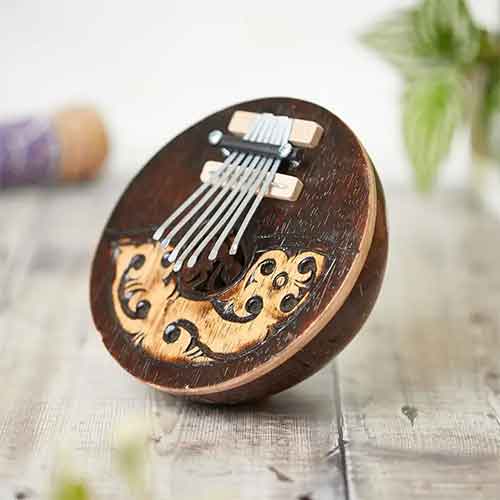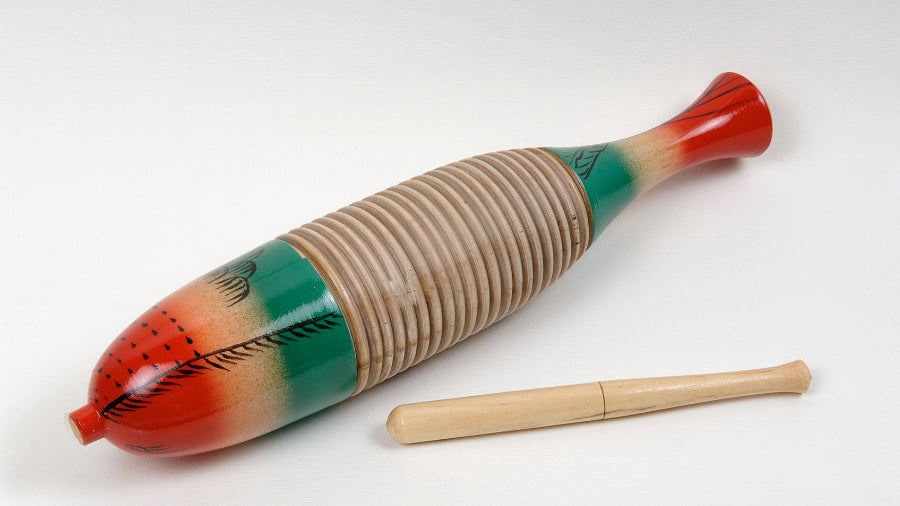Parenting can be incredibly rewarding, but it's also filled with challenges and learning curves. Every parent makes mistakes, often unknowingly, which can affect both their child and their parenting experience. In this blog post, we're highlighting 10 common parenting mistakes you might not realize you're making. By understanding these pitfalls and learning how to avoid them, you can improve your parenting approach and create a more positive environment for your child. Let’s dive into these issues and discover practical solutions to help you navigate the journey of parenthood more effectively.
1. Not Finding Time for Hobbies

Balancing the demands of parenting often leaves little room for personal interests, leading many parents to feel overwhelmed and disconnected from their own passions. However, finding time for hobbies isn't just about personal enjoyment—it can also enhance your overall well-being and make you a more engaged, patient, and happier parent. To reclaim this time, start by choosing hobbies that fit into your home life and budget. Simple activities like cooking, gardening, or learning an instrument can provide relaxation and fulfillment without disrupting your daily responsibilities. Prioritizing your own interests and well-being helps you recharge, ultimately benefiting both yourself and your family.
2. Not Using a Routine Properly

Creating a consistent routine for your child can be challenging, but it's essential for fostering stability and reducing stress for both children and parents. A well-established routine helps manage daily activities, such as morning preparations, meal times, and bedtime rituals, making life more predictable and less chaotic. If routines are not properly implemented, it can lead to issues like irregular sleep patterns, moodiness, and difficulty transitioning between activities.
To address this, start by setting a clear and consistent schedule that fits your family’s needs, including regular bedtimes, meal times, and structured daily activities. Be persistent and flexible, adjusting the routine as needed while maintaining consistency. Effective communication with your child about the benefits of the routine and involving them in the process can also enhance adherence and make the transition smoother.
3. Not Encouraging Kids to Share

When children struggle to share, it can lead to frequent conflicts between siblings and added stress for parents. To address this issue effectively, start by modeling sharing behaviors yourself and involve your children in these practices, such as asking them to let their sibling use a toy for a while.
Reinforce sharing through turn-taking games and ensure these lessons are consistently applied both at home and in other environments like school. Encouraging a culture of sharing through regular practice and clear communication helps reduce conflicts and fosters a more harmonious family environment.
4. Worrying Too Much About Your Child

It's natural to worry about your child's well-being, but excessive anxiety can affect both your mental health and your child's development. Instead of focusing on every minor issue, try to assess situations with a balanced perspective. Seek advice from healthcare professionals when needed, and practice mindfulness and relaxation techniques to manage stress. Understanding that some level of worry is normal can help you maintain a healthier approach to parenting.
5. Not Checking Ingredients in Food and Drinks

Being mindful of what your child consumes is important for their health and development. Always check ingredient labels to avoid allergens, excessive sugar, and unhealthy additives. Opt for whole, nutrient-rich foods and be cautious with processed items. Educate yourself on healthy dietary choices and consult a pediatrician for personalized advice on your child's nutritional needs.
6. Ignoring Signs of Postnatal Depression

Postnatal depression can significantly impact both parents and their children. Common symptoms include persistent sadness, fatigue, and difficulty bonding. If you or your partner experience these symptoms, seek help from a healthcare professional. Early intervention through counseling or medication can provide support and improve your overall well-being, ensuring a better environment for your child.
7. Neglecting Self-Care

Prioritizing self-care is essential for maintaining your physical and mental health as a parent. Make time for activities that recharge you, whether it’s exercise, hobbies, or relaxation. Balance your responsibilities by seeking support from family and friends, and don’t hesitate to take breaks when needed. By taking care of yourself, you’ll be better equipped to care for your child and manage parenting challenges.
8. Underestimating the Costs of Raising Children

Solution: Raising children involves significant financial planning. Create a budget that includes both immediate needs and future expenses, such as education and healthcare. Explore available financial assistance programs and consider long-term savings plans. Proper budgeting and financial planning can help ease the burden and ensure you’re prepared for both expected and unexpected costs.
9. Using Night Lights

Night lights can help ease nighttime fears, but those emitting blue light can interfere with sleep patterns. Choose night lights with a warm, soft glow to minimize disruptions to your child’s circadian rhythm. Reducing blue light exposure before bedtime and maintaining a consistent sleep routine can support better sleep quality for your child.
10. Ignoring Sibling Age Gaps

Age gaps between siblings can affect family dynamics and parenting strategies. Smaller gaps may lead to closer companionship but can also mean more intensive parenting demands. Larger gaps might offer a different dynamic, with older siblings having more independence. Understand how the age gap affects your family and plan your parenting approach to balance attention and support for each child.
11. Spoiling Children Often

Frequently giving in to children’s every request can lead to entitlement and unrealistic expectations. While occasional indulgence can be a way to show love, constant overindulgence may result in tantrums and a lack of appreciation. The solution is to strike a balance: occasionally treat your child, but also teach them patience and the value of earning and appreciating what they have.
12. Not Setting Boundaries

Failing to consistently set and enforce boundaries can cause children to struggle with rules outside the home and exhibit problematic behavior. To address this, establish clear and consistent rules, and make sure they are upheld. This helps children understand limits and develop self-discipline, making it easier for them to adapt to various environments and expectations.
13. Buying Too Many Toys

Overloading children with toys can lead to shorter attention spans and less engagement with each item. Rather than constantly buying more, focus on providing a few high-quality toys that encourage creativity and sustained play. This ensures that the toys your child has are used effectively and that their playtime remains meaningful.
14. Giving in to Trends

Caving to trends and purchasing expensive designer clothing or the latest toys can create unnecessary financial strain and offer little lasting benefit. Instead, opt for durable, good-quality items that meet your child’s needs without the pressure to follow every trend. This approach saves money and helps your child develop a more practical and less materialistic perspective.
15. Overusing Technology

Excessive screen time can contribute to issues like poor sleep, reduced social skills, and speech delays. To counteract these effects, set limits on screen time and encourage alternative activities that promote physical interaction, creativity, and learning. Balancing technology use with other enriching activities supports your child’s overall development.
16. Toy Storage Solutions

Investing in toy storage solutions can help manage clutter, but it doesn’t address the root issue of having too many toys. Instead of focusing solely on storage, reduce the number of toys and teach your child to organize and appreciate what they have. This approach helps maintain a tidy play area and encourages a greater appreciation for their toys.
17. Being Too Materialistic
Placing too much emphasis on material possessions can overshadow the value of meaningful experiences and relationships. To address this, prioritize spending quality time with your child and engaging in activities that foster genuine connections and build lasting memories. This helps your child develop a balanced perspective and value non-material aspects of life.
18. Not Disciplining Naughty Behaviour

Failing to address naughty behavior promptly can lead to an escalation of issues and reinforce undesirable actions. When children are not consistently disciplined, they may become confused about acceptable behavior and boundaries. Implement a consistent disciplinary approach that is fair and age-appropriate.
Clearly communicate the expected behavior and the consequences of not adhering to it. Address misbehavior immediately to reinforce learning and understanding. Ensure that discipline is combined with positive reinforcement of good behavior to help children learn and grow.
19. Using Ineffective Punishments

Employing punishments that are too harsh, too lenient, or irrelevant to the behavior can be ineffective and sometimes counterproductive. Ineffective punishments might not correct the behavior and can lead to resentment or confusion. Choose punishments that are directly related to the misbehavior and are appropriate for the child’s age and understanding.
Focus on natural consequences or logical consequences that relate directly to the action. Adjust your approach as needed and discuss the reasons behind the punishment to ensure it is understood and accepted.
20. Not Providing Emotional Support

Neglecting to offer emotional support during disciplinary moments or in general can leave children feeling unsupported and misunderstood. This lack of emotional validation can exacerbate behavioral issues and hinder the development of a trusting parent-child relationship.
Alongside discipline, provide emotional support by actively listening to your child’s feelings and validating their emotions. Offer comfort and guidance, helping them understand their feelings and the reasons behind their behavior. Creating an emotionally supportive environment encourages better communication and helps children cope with their emotions more effectively.
21. Taking Children's Statements Personally

When children say things like "I hate you," it can be deeply hurtful and may make you question your parenting. However, these statements often reflect temporary emotions rather than true feelings. They might be expressing frustration, seeking attention, or reacting to a tough day.
Taking these words personally can lead to defensive reactions that create tension and hinder effective discipline. Instead, approach these statements with empathy and objectivity. Focus on understanding the underlying causes of their emotions and offer reassurance. By separating your own feelings from the situation, you can address the behavior more effectively and model healthy emotional responses, ultimately strengthening your relationship with your child.
22. Not Giving Yourself Credit

It’s easy to be hard on yourself as a parent, but remember that simply being here, reading this article to improve your parenting skills, shows that you care deeply and are committed to doing your best. Acknowledge your efforts and achievements, no matter how small. Believing in yourself and your ability to grow as a parent is essential. Recognize your strengths, celebrate your progress, and be kind to yourself in the journey of parenting.
Up Next: 5 Reasons Why Kids Are Clumsy












